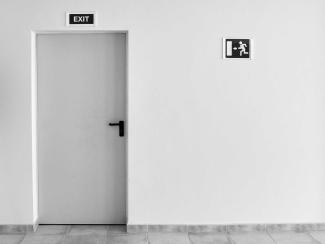
Your Emergency Fund and You
Summer’s finally here. The sun is out, it’s warm, the days are longer, and your worries seem just a little bit further away. But folks, I’m sorry to say, sometimes storms roll in on the sunniest of days. And if I’m honest, the world is a bit of a scary place at the moment, with politics impacting the economic climate, and warmer temperatures affecting agriculture all around the world, the future is perhaps not as certain as it once was.
So, instead of purchasing a bunker and preaching ‘the end is near’ to your entire social media following, prepare for the uncertainty with an emergency fund. What is an emergency fund? According to Investopedia - by the way Investopedia is an awesome financial term resource - an emergency fund can be defined as, “an account used to set aside funds needed in the event of a personal financial dilemma, such as the loss of a job, a debilitating illness or a major expense. The purpose of the fund is to improve financial security by creating a safety net of funds that can be used to meet emergency expenses as well as reduce the need to draw from high interest debt options, such as credit cards or unsecured loans.”
The old saying ‘failing to prepare is preparing to fail’ comes to mind when thinking about the importance of an emergency fund. It’s not necessarily top of mind when payday arrives, however, contributing to your emergency fund should feel as urgent as paying off monthly bills.
So how much should you contribute to your emergency fund?
As daunting as it might seem, it’s recommended that you save 3-6 months of living expenses in your emergency fund. In the age of the internet, many financial institutions have calculators available to estimate the amount you should keep. In fact, Nerdwallet has a fantastic resource breaking down your monthly expenses to deliver a 6 month estimate of how much you should save.
If you’re at the beginning of your journey of creating an emergency fund, where should you start? Set monthly goals and stick to them if you can. Cut back on things that could be considered luxuries, and keep reminding yourself that one day you might be thankful your emergency fund exists.
Once you start to build your ‘rainy day’ fund, it’s critical to remember what an emergency really is. It is not a vacation - as much as I wish it was - it is not a new wardrobe, or even a new television. It truly needs to be allocated to emergencies only.
*This content is developed from sources believed to be providing accurate information. The information provided is not written or intended as tax or legal advice and may not be relied on for purposes of avoiding any Federal tax penalties. Individuals are encouraged to seek advice from their own tax or legal counsel. Individuals involved in the estate planning process should work with an estate planning team, including their own personal legal or tax counsel. Neither the information presented nor any opinion expressed constitutes a representation by us of a specific investment or the purchase or sale of any securities. Asset allocation and diversification do not ensure a profit or protect against loss in declining markets. This material was developed and produced by Advisor Websites to provide information on a topic that may be of interest. Copyright 2021 Advisor Websites.

